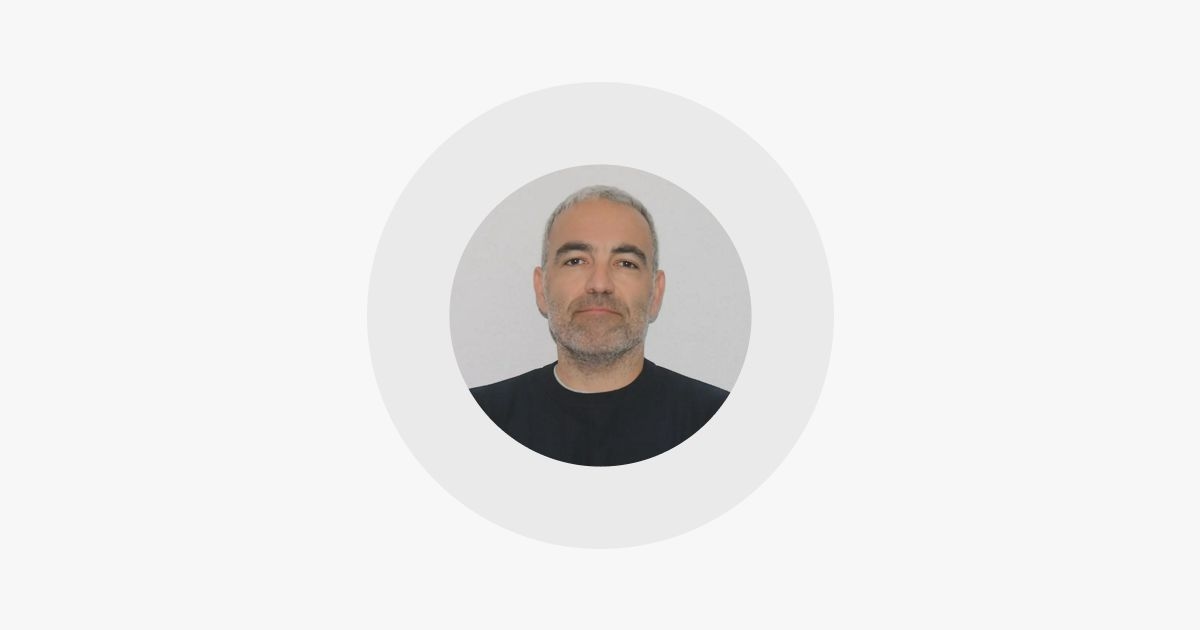Jeffrey Epstein: the beginning of the "spiel"

Jeffrey Epstein, the high-level bounty hunter. It's 1974 in New York City, and Jeffrey Epstein, a seemingly ordinary citizen with no higher education and a dropout from the university he enrolled in, is hired by a powerful man to tutor him in mathematics.
This man's name is Donald Barr, and he ran the Dalton Preparatory School. He, Donald, amassed an impressive resume throughout his life, not only as a writer or as a teacher at the Dalton School and lecturer. In fact, he was part of the United States Office of Strategic Services during World War II.
If the name 'Office of Strategic Services of the United States of America' doesn't ring a bell, that's normal. This office where Donald worked is known in English as 'OSS' and preceded what would later become the CIA – the American Central Intelligence Agency. Thus, it is clear that Donald Barr was not simply a public servant in the field of public and private education, nor merely a professional in the 'artistic' field of writing. Donald Barr's work for the American state was extremely relevant, since he served as an agent in the agency that would later become the CIA, a workplace that gave William Barr, son of Epstein's first employer, Donald Barr, his first job.
While principal of Dalton School, Donald Barr also published a book a year before recruiting Jeffrey Epstein. 'Relationships in Space' is the novel that stands out for exploring the history of the intergalactic colony of Kosar, whose members are governed by an aristocratic elite with decadent values and sustained by the sexual abuse of children and adolescents, who serve as sex slaves for all the adults in this story. This is in 1973! Although Epstein was not yet known as a sexual predator, human trafficker, rapist, and sponsor of gang rapes of minors in 1974, the book was written and published precisely one year before Donald Barr recruited Epstein to teach at an elite school. Therefore, it is already clear that although Jeffrey Epstein lacked the credentials to be a professor, whoever hired him seemed to see in him another kind of potential, perhaps a hidden talent for being a 'sex dealer of minors' for the elites, since Donald Barr's 'Relationships in Space' portrays the space universe where child abuse is normalized, later institutionalized, and decreed as a necessary 'good' for the survival of the rich and powerful.
But this story, which resembles a horror version of the film 'Mission Impossible', continues in 1976, the year Epstein made an unimaginable professional leap. While still an unlicensed teacher at the prestigious Dalton School, and at an event that would bring together the parents and teachers of the students, Epstein befriended Ace Greenberg, the father of one of his students. From this encounter would emerge a new set of social and professional relationships that were very important to Jeffrey Epstein's shady dealings. Ace Greenberg, who would become one of the most important figures on Wall Street in the 70s, 80s and 90s, would also serve as CEO and Chairman of the Board of Bear Stearns Bank, a famous bank in the history of the American stock market whose end culminated in the 2008 American crisis (subprime mortgage crisis).
Mr. Greenberg plays a key role in Epstein's social rise, initially hiring him without apparent reason, given that we are talking about the unqualified Jeffrey Epstein, a mere mathematics professor. Thus, Epstein is hired for the 'option desk' platform of the famous bank Bear Stearns. This platform, which Epstein integrates, aims to provide resources for trading and managing financial portfolios, an area completely unknown to Epstein until then. It is at Bear Stearns that Epstein receives training to learn how to negotiate ways of allocating financial resources in tax havens, and it is at Bear Stearns that Epstein develops tools to manage assets using offshore companies.
At this point, it seems we have almost a super-agent for the rich and powerful, without any concrete explanation as to why Epstein was chosen. Consider that during Epstein's short time with the company (1976-1981), his roles varied from 'junior assistant' to 'high-net-worth asset manager,' giving the now 'high-ranking financial asset manager' the responsibility of executing financial planning for very important clients on the American stock exchange, granting him the status of ultimate confidant to powerful people. In this role, Epstein also began performing functions such as tax and estate planning, as well as personalized planning for his clients. Apparently, Epstein found in Bear Stearns the realization of the true American dream , considering he only has a high school education and previously held the modest position of mathematics teacher at Dalton School.
According to the journalist who exposed him, Saagar Enjeti, it was during these five years that Epstein was taught how to launder money and create a network of contacts to run the pedophilia ring he is accused of leading throughout his life. During his time at Bear Stearns, the magnate Epstein specialized in managing offshore accounts in the Cayman Islands, befriending and doing business with the most dubious Caymanian personalities, deepening these relationships over the years, even after he had already been dismissed from the bank. It is here, says Saagar Enjeti, 'that Epstein comes to be seen as an interesting asset for international intelligence and secret service agencies', since his clients included the richest and most influential Americans in the US , belonging to both the Democratic and Republican wings.
These people, who ended up confiding their deepest secrets to Epstein, as well as privileged information about buying and selling stocks, were so ashamed at the mere thought of certain details coming to light that they never brought Epstein to justice whenever they discovered his crimes. After all, they too were cunning traders.
Five years after Epstein joined Bear Stearns in 1980/81, he was fired for violating a financial regulation of the banks themselves, according to Saagar. Epstein allegedly violated 'internal rules of several banks within the US financial system and also violated rules concerning the confidentiality required of financial managers when they possess privileged and internal information of the companies that execute financial transactions and commercial exchanges'. A small artist of violation, I would say. From laws to the physical integrity of minors and some adults.
And as the journalist points out, Epstein was fired from Bear Stearns without any criminal charges being filed against him, or even brought to court. Why? 'Because Jeffrey Epstein was already practicing what he called 'The Box Strategy,' which consists of only being caught internally without being handed over to the authorities, due to the amount of secret or embarrassing information he collected from his associates and clients, which he used as leverage when attempts were made to turn him over to the police for being caught committing fraud or worse crimes.'
What happens after being fired from Bear Stearns? Nothing. Epstein takes another giant leap in his career as a financial asset manager, creating a company called Intercontinental Assets Group (IAG). The year is 1981, and in the description of his main functions at his new company, Epstein states that he is a 'high-level bounty hunter' , helping clients recover all their lost assets. Therefore, as a 'high-level bounty hunter' , Epstein recruited notable clients. One of them was the Spanish actress and heiress Ana Obregón, in 1982, to whom he recovered millions of dollars lost and invested in Drysdale Government Securities, which collapsed due to fraud. The money had allegedly been invested by the actress's billionaire father. This Epstein company is even registered in documentation belonging to the American courts .
Epstein also boasted of having worked with Saudi businessman Adnan Khashoggi, known for his involvement in the Iran-Contra scandal in the 1980s. This rise seems extremely rapid, considering that just seven years earlier he had begun his career as a mathematics teacher at Dalton School. It's laughable if we forget that rape and child trafficking were covered up for decades.
Saagar Enjeti reminds us that it was at this time that Epstein was already on the radar of intelligence agencies or was allegedly already an 'asset' of some internationally known intelligence agency. Why? Because although it may seem unclear why intelligence agencies would want an ' offshore account specialist' , the reason is unanimously and peremptorily understood, as is the evidence: 'In 1980 there were numerous shady deals involving the illegal buying and selling of weapons. Here on American soil, we ourselves had the 'Iran Contra Affair' underway. We were in the midst of the Cold War, and everyone had a distorted view of how 'CIA front companies' worked. No one in the CIA had a bank account at JP Morgan Chase labeled 'CIA agency account', nor would it be used to openly buy front companies.' Saagar thus refers to the film Argo , starring Ben Affleck, to explain the true value and role of Epstein at the beginning of his very likely career as an active member of the intelligence agencies. (*)
'Has everyone seen the movie Argo ? Did you see the movie? Do you remember when Ben Affleck's character flies to Hollywood and finds a front man to create a company, and how the money laundering is done through that front man? That man, Ben's character, would be what is called a CIA 'asset,' because he has the necessary qualities to open those kinds of shell companies.' Thus, the journalist and White House correspondent concludes that this is one of the most viable and common ways for intelligence agencies (such as the US Secret Service, Mossad, etc.) to operate their financial transactions necessary for the recurring 'services on behalf of the State' that they perform.
Of course, everything seems strangely stitched together to attach the image of a 'secret agent' to Epstein. But nobody says he was an agent, but rather an 'asset' of the intelligence agencies. As further evidence of this possibility, and investigating more thoroughly and concretely, Saagar Enjeti notes that at this point in Epstein's life, he begins to build an unlikely friendship with an important man named Douglas Leese. Leese is from the United Kingdom, and official government documents there prove numerous instances of his involvement in arms dealing. No other reason than the cover-up of the money involved in these scandals could be behind the preference of criminals of this magnitude for non-educated pedophiles like Epstein.
Douglas Leese is thus considered an operative of both the CIA and MI6, due to the stories that Epstein himself told at the events he attended, which included both arms magnates and Hollywood artists, and even politicians and presidents of certain countries. Epstein, in his characteristic boastful tone, would claim to be part of an 'exclusive circle of secret agent friends,' which led journalists to later investigate the statements and realize that this was partially true, replicating the articles in both the American and Australian versions of Rolling Stone .
In any case, it is the work of journalist Saagar Enjeti that establishes Leese as an expert in money laundering using offshore companies. Documents from the international website OffshoreAlert already warned about this arms dealer's dealings in 1997.
The point is that Jeffrey was not even 30 years old when Leese invited him to travel on a private plane to Virginia to visit the United States Department of Defense, located in the Pentagon building. This happened years before Epstein made his fortune or even came close to being a millionaire. As we said before, Epstein was still far from 30 years old when this happened, although he was already involved in offshore businesses. In the years that followed, it was the British arms dealer who introduced Epstein to almost all of the future major clients and friends who would make him a successful billionaire.
Among these clients and friends mentioned above are Adnan Khashoggi, the Saudi billionaire arms dealer and distributor who was involved in the Iran-Iraq War, and Steven Hoffenberg , convicted of running one of the largest Ponzi schemes in history , which was later defrauded and sold to Epstein for $100 million.
It is important to pay attention to the following information, as it is from this that the Epstein puzzle begins to come together more easily. It was Douglas Leese, this most recent friend of Epstein, whose contacts led him to provide Epstein with a trip to the Pentagon, who introduced him to the father of his future partner, the now-detained and convicted Ghislaine Maxwell. Leese may have allegedly launched Epstein's 'solo' career in the world of espionage assets when he introduced him to Robert Maxwell.
For this new chapter in Epstein's life, which we will address in a second article, it is important to understand where his friendships with these three individuals originated, because according to Saagar, 'it is these friendships that provide the context for the profession Epstein pursued until his arrest,' in parallel with his sexual perversion and criminal conduct involving pedophilia and trafficking of minors. This is just the beginning of Jeffrey Epstein's convoluted life story.
observador




